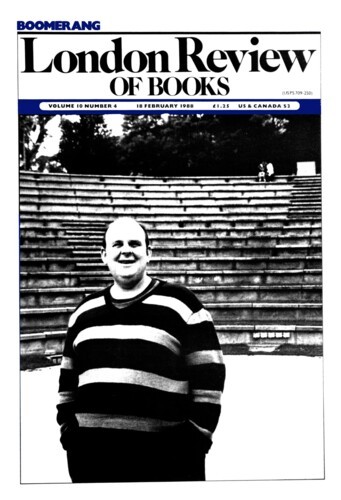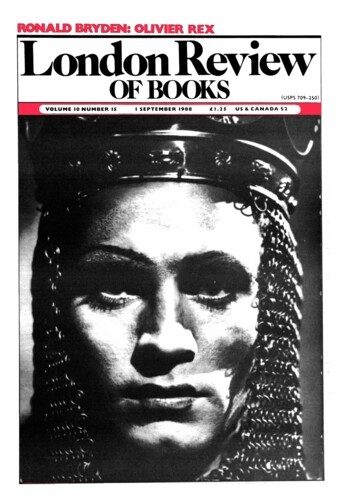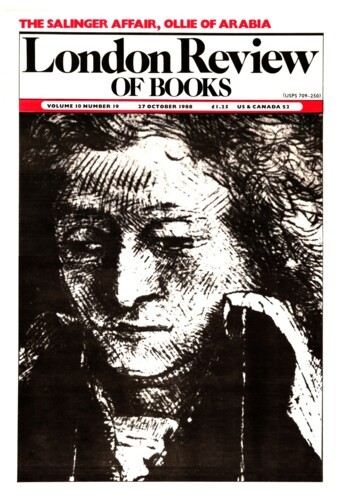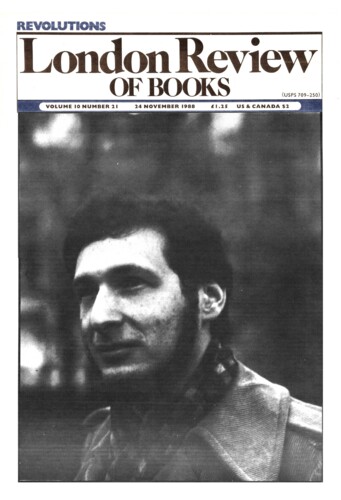Poem: ‘Multiplied’
Anthony Thwaite, 18 February 1988
He’s gone with her, and she has gone with him, And two are left behind; and there’s four more – The children, two of each; grandparents, still Alive and well, till now, and taking sides; And neighbours, six close by, and more besides In half a dozen villages ... Until The whole thing multiplies by seven score – Why he went off with her, and she with him.
One, left...





